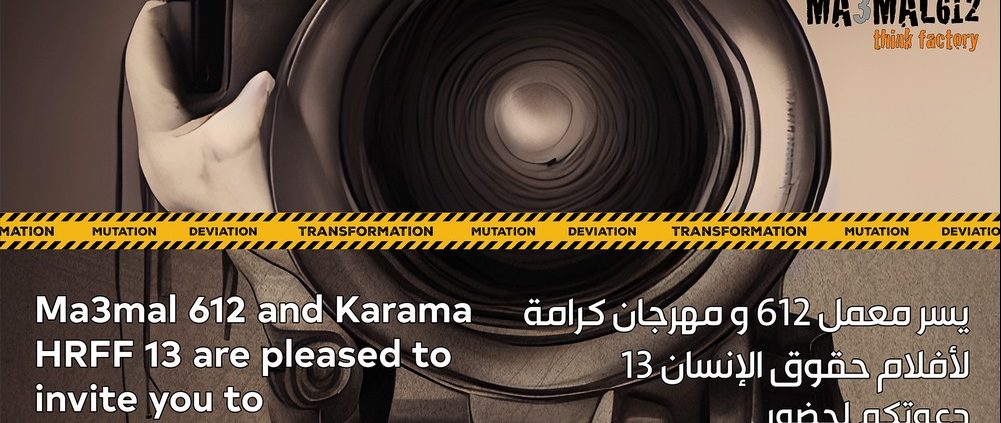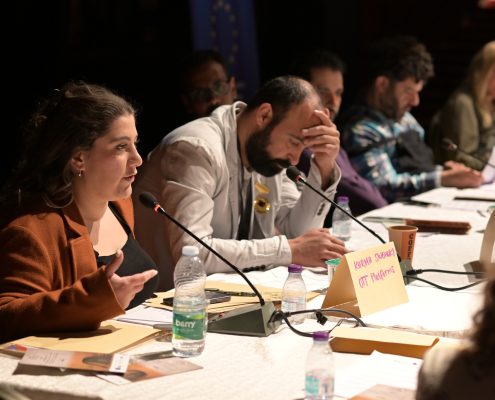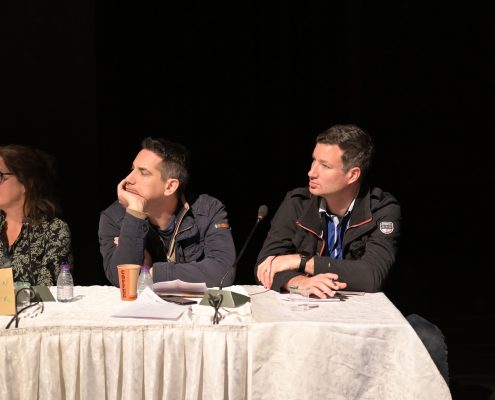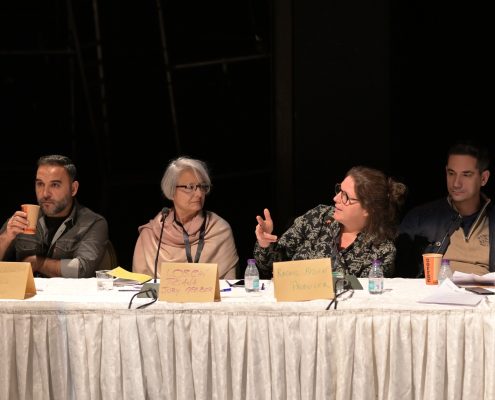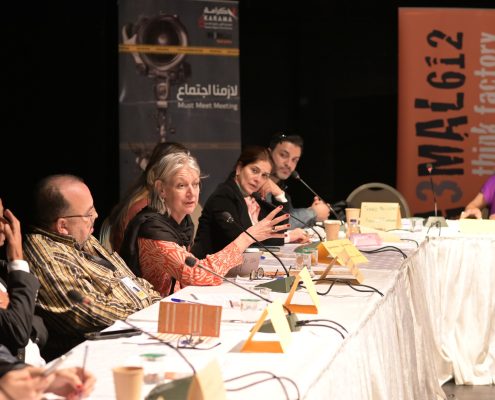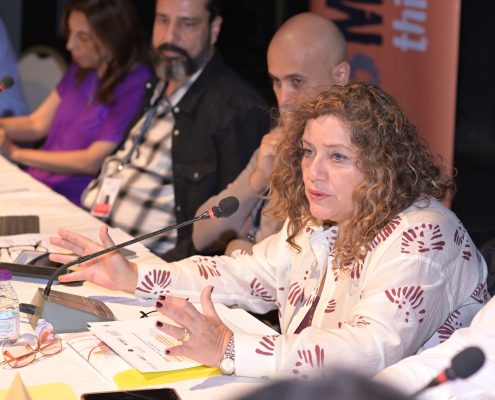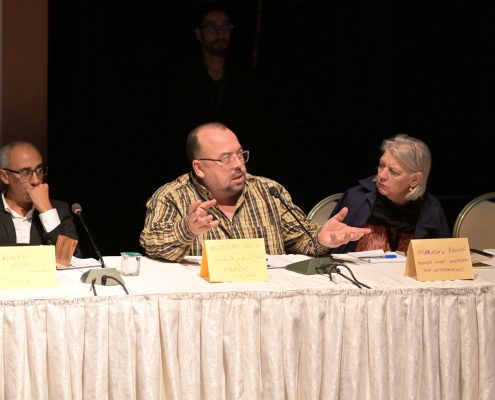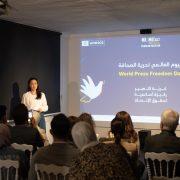Must Meet Meeting: Independent Cinema Deviates Towards Novel Streaming Platforms
The annual networking event “Must Meet Meeting” was organized in cooperation with ANHAR Network, International Media Support (IMS), and the Czech Ministry of Foreign Affairs. This event is based on a roundtable discussion that brings together interdisciplinary filmmakers, journalists, producers and film festival directors. This unique platform engages with the polemics of cinema, aiming to connect the local scene with a global scene, and hoping to re-active relationships and productions through a space for critical discussions.
All members of ANHAR Network attended this meeting to network with producers, directors, and practitioners in the film and production sector in Jordan and the world. The most important attendees: Film director Abdslam Kelai: Morocco, Margie De Koning – Artistic Director of Movies that Matter: Netherlands, Ketil Magnussen -Director of the Human IDFF: Norway, Film director Julia Forer: Switzerland, Producer Tariq Abu Lughod: Jordan, and Producer Talal Awamaleh (Arab Telemedia Group), Karma Swearky: Channels and Platforms Manager (Arab Telemedia Group_: Jordan. The meeting was also attended by the Irish activist and director Caoimhe Butterly, the Kurdish director Adel Abdulmajeed Youssef, the former director of the animation festival in Annecy Tiziana Loschi, the French producer Rachel Vizien, the Kuwaiti director Farah Al-Hashem, the Lebanese director and prison activist Zeina Daccache, and the Croatian producers Jure Busic and Nicola Tomic, Jordanian directors Saed Aruri and Zaid Baqain, online platform artist Mohammed Al-Qaq, and Sawsan Qaoud, director of the Palestine Cinema Club.
This year’s topic of discussion was entitled “Transformation in Production and Screening: Independent Cinema Deviates towards Novel Streaming Platforms”. Visionaries, artists, writers, critics, activists and filmmakers also carry a responsibility to interrogate these changes. This debate does not suggest a negative nor positive connotation, but rather a genuine questioning of these transformative deviations that have launched a new era in the world of cinema, the “image”, and viewing patterns.
The discussions concluded that it is necessary to establish mechanisms to deal with distributor’s policies and the obstacles they place preventing screenings human rights films. It was also evident that there is a need to comprehend the laws of operating or partnering with streaming platforms, in allowing directors the right to screen their films in local activities or at various international festivals. All participants approved that a booklet with all the recommendations, interventions and opinions on this subject will be published and distributed online through the ANHAR platform.

